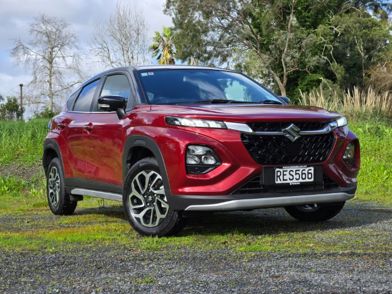With petrol prices rising steadily over the last decade, many drivers are considering ways to cut costs. One potential option might seem to be switching to a lower-octane, cheaper fuel. However, is this truly a cost-saving measure?
In short, the answer is no - and it could even result in higher costs over time.
Approximately 90 percent of petrol-powered vehicles in New Zealand are designed to run on 91-octane petrol, leaving few options for cheaper alternatives. For owners of cars that require higher octane fuels, such as 95 or above, the temptation to switch to 91-octane in pursuit of savings can actually lead to significant issues rather than financial benefits.
Risks of using lower octane fuel
For vehicles requiring higher octane fuel, using 91 octane increases the likelihood of pre-ignition or "knocking." This occurs when the fuel combusts prematurely, creating force against the engine’s pistons while they are still in their compression stroke. Such premature combustion can cause severe engine damage.
That being said, most modern engines are equipped with advanced sensors and computer systems capable of adjusting ignition timing to mitigate the risk of knocking. This technological safeguard may allow some cars to run on lower octane fuel without immediate damage.
Performance and fuel efficiency concerns
However, there is a significant caveat. Even if engine damage is avoided in the short term, using a lower octane fuel will lead to reduced engine performance. Depending on the make and model of the car, this loss in performance can range from minimal to substantial. A drop in performance typically means the driver needs to apply more throttle to achieve the same acceleration, leading to increased fuel consumption.
Additionally, higher octane fuels, such as 95 or 98, tend to burn more efficiently than lower octane alternatives. This increased efficiency translates to better mileage per tank. Therefore, while you may save initially at the pump with lower octane fuel, the reduced fuel efficiency and increased consumption could easily negate any savings.
Long-term risks and manufacturer recommendations
The longer-term risks of using lower octane fuel in a vehicle that requires high octane fuel should not be ignored. Extended use of 91-octane fuel could eventually lead to engine damage. Moreover, not following the manufacturer’s fuel recommendations may void the warranty on newer cars, leaving owners liable for expensive repairs.
Can higher octane fuel actually save money?
Conversely, some drivers may wonder whether using higher octane fuel in cars rated for 91-octane could yield savings. While most cars designed for 91-octane fuel can safely run on higher octane fuels, any potential gains in fuel efficiency are generally offset by the higher price at the pump. The improved range or performance is often negligible, meaning the additional cost of premium fuel is unlikely to provide financial benefits in the long run.
Conclusion
The potential benefits of using a fuel with a different octane rating than recommended by the vehicle’s manufacturer are generally outweighed by the downsides, whether in the form of increased risk, reduced performance, or higher overall costs.
While it might be acceptable to use lower octane fuel in an emergency or for short-term financial reasons, consistently deviating from the manufacturer’s recommendation is not advisable. In most cases, the safest and most cost-effective choice is to use the octane rating specified by the car's manufacturer.





